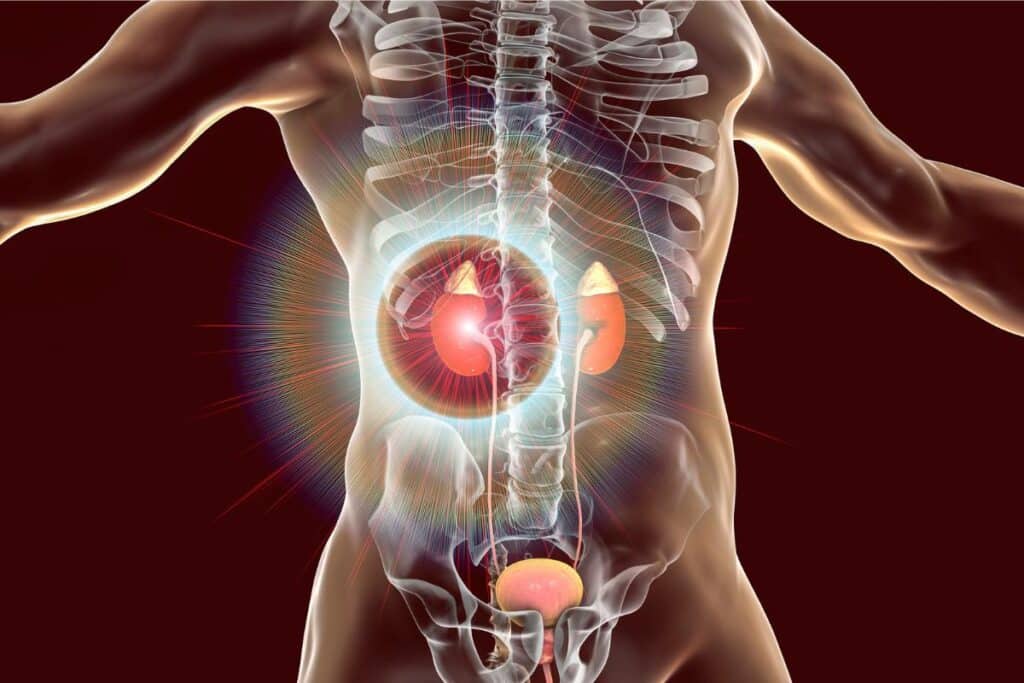Kidneys are crucial in maintaining overall health by filtering waste, balancing electrolytes, and regulating blood pressure. Low-functioning kidneys, a condition often referred to as chronic kidney disease (CKD), impair these essential functions, accumulating harmful substances in the body. Individuals with CKD need to adopt a tailored nutritional strategy and engage in self-care practices that support kidney health and improve their quality of life. This article will discuss nutrition and self-care for low-functioning kidneys and provide a guide to improving renal health.
Understanding Low-Functioning Kidneys
Low-functioning kidneys are typically diagnosed when there’s a persistent reduction in the glomerular filtration rate (GFR), which measures how well your kidneys are cleaning your blood. The GFR is calculated based on creatinine levels, age, sex, and race. A GFR under 60 mL/min/1.73 m² for three months or more indicates chronic kidney disease.
Optimal Foods for Kidney Health
Individuals with reduced kidney function should focus on foods that lessen the kidneys’ workload. Here are six beneficial foods:
- Cauliflower: Rich in vitamin C, folate, and fiber, cauliflower also contains compounds that can help neutralize toxic substances in the body.
- Blueberries: Packed with antioxidants and nutrients, they fight inflammation and may protect against kidney damage.
- Sea Bass: This high-quality protein source is easier on the kidneys than red meat and is rich in anti-inflammatory omega-3 fats.
- Garlic: Known for its anti-inflammatory properties, garlic adds flavor without the need for excess sodium, which can harm compromised kidneys.
- Buckwheat: A good alternative to wheat, it’s high in nutrients and fiber while being low in potassium, which kidneys struggle to regulate in later stages of CKD.
- Olive Oil: High in oleic acid, an anti-inflammatory fatty acid, olive oil is beneficial for kidney health and is a healthier fat choice.
Self-Care for Improved Kidney Function
Maintaining a balanced diet that limits sodium, potassium, and phosphorus intake is vital in terms of self-care. Regular exercise and staying hydrated are also important, but one should be cautious with fluid intake if the kidney disease is advanced. Monitoring blood pressure and blood sugar levels can prevent further kidney damage.
Kidney diseases such as CKD can profoundly impact the quality of health and life. They can lead to complications like hypertension, anemia, weak bones, poor nutritional health, and nerve damage. Moreover, kidney disease increases the risk of cardiovascular diseases.
Self-care practices that can aid kidney function include:
- Hydration: Adequate water intake helps the kidneys clear sodium and toxins from the body.
- Monitoring Blood Pressure: High blood pressure is a significant risk factor for kidney disease. Regular monitoring and managing blood pressure can reduce strain on the kidneys.
- Healthy Diet: A diet low in sodium, processed meats, and other kidney-stressors is beneficial. Plenty of fruits, vegetables, and whole grains can help maintain kidney health.
- Limiting Alcohol and Avoiding Smoking: Both smoking and excessive alcohol intake can impair kidney function and lead to kidney damage.
- Regular Exercise: Physical activity helps control blood pressure, reduce weight, and maintain overall health, supporting kidney function.
- Controlling Blood Sugar: For those with diabetes, managing blood sugar levels is crucial, as high blood sugar can damage kidney filters.
- Avoiding Overuse of NSAIDs: Nonsteroidal anti-inflammatory drugs like ibuprofen can harm the kidneys if taken regularly over a long period.
- Regular Health Check-ups: Regular check-ups with a healthcare provider can help detect potential kidney issues early.
- Stress Management: Chronic stress can negatively affect blood pressure and overall health, impacting kidney health.
- Adequate Sleep: Good sleep is vital for overall health and helps regulate kidney function.
By incorporating these self-care practices, individuals can significantly contribute to maintaining their kidney health and preventing potential kidney-related issues. It’s always recommended to consult with healthcare professionals for personalized advice, especially if existing health conditions or concerns exist.
Conclusion
Maintaining kidney health is a crucial aspect of overall wellness. Adopting a lifestyle that includes regular exercise, a balanced diet, and adequate hydration, along with avoiding harmful habits like smoking and excessive alcohol intake, plays a significant role in supporting kidney function. Monitoring health parameters such as blood pressure and blood sugar levels, and seeking regular medical advice, can also help in early detection and management of kidney-related issues. Through mindful self-care practices, individuals can ensure better kidney health and overall well-being.




